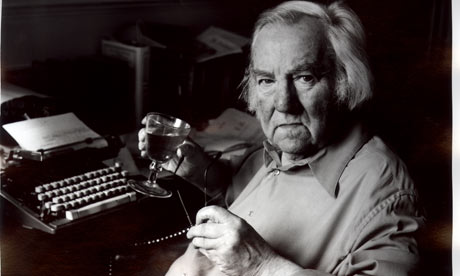 |
| Keith Waterhouse. |
English novelist and newspaper columnist Keith Waterhouse (1929-2009) was a prolific writer: 16 novels, countless plays and film scripts, and, for almost 40 years, a twice-weekly newspaper column.
In his book,
Waterhouse on Newspaper Style, now back in print in both the U.S. and the U.K. At the end of the book, Waterhouse summarizes a number of his key points with these "ground rules" for writers. Richard Nordquist lists them on his
blog:
- Use specific words (red and blue) not general ones (brightly coloured).
- Use concrete words (rain, fog) rather than abstract ones (bad weather).
- Use plain words (began, said, end) not college-educated ones (commenced, stated, termination).
- Use positive words (he was poor) not negative ones (he was not rich -- the reader at once wants to know, how not rich was he?).
- Don't overstate: fell is starker than plunged.
- Don't lard the story with emotive or "dramatic" words (astonishing, staggering, sensational, shock).
- Avoid non-working words that cluster together like derelicts (but for the fact that, the question as to whether, there is no doubt that).
- Don't use words thoughtlessly. (Waiting ambulances don't rush victims to hospital. Waiting ambulances wait. Meteors fall, so there can be no meteoric rise.)
- Don't use unknown quantities (very, really, truly, quite. How much is very?).
- Never qualify absolutes. A thing cannot be quite impossible, glaringly obvious or most essential, any more than it can be absolutely absolute.
- Don't use jargon, clichés, puns, elegant or inelegant variations, or inexact synonyms (BRAVE WIFE DIED SAVING HER SON is wrong; wife is not a synonym for mother).
- Words are facts. Check them (spelling and meaning) as you would any other.

No comments:
Post a Comment